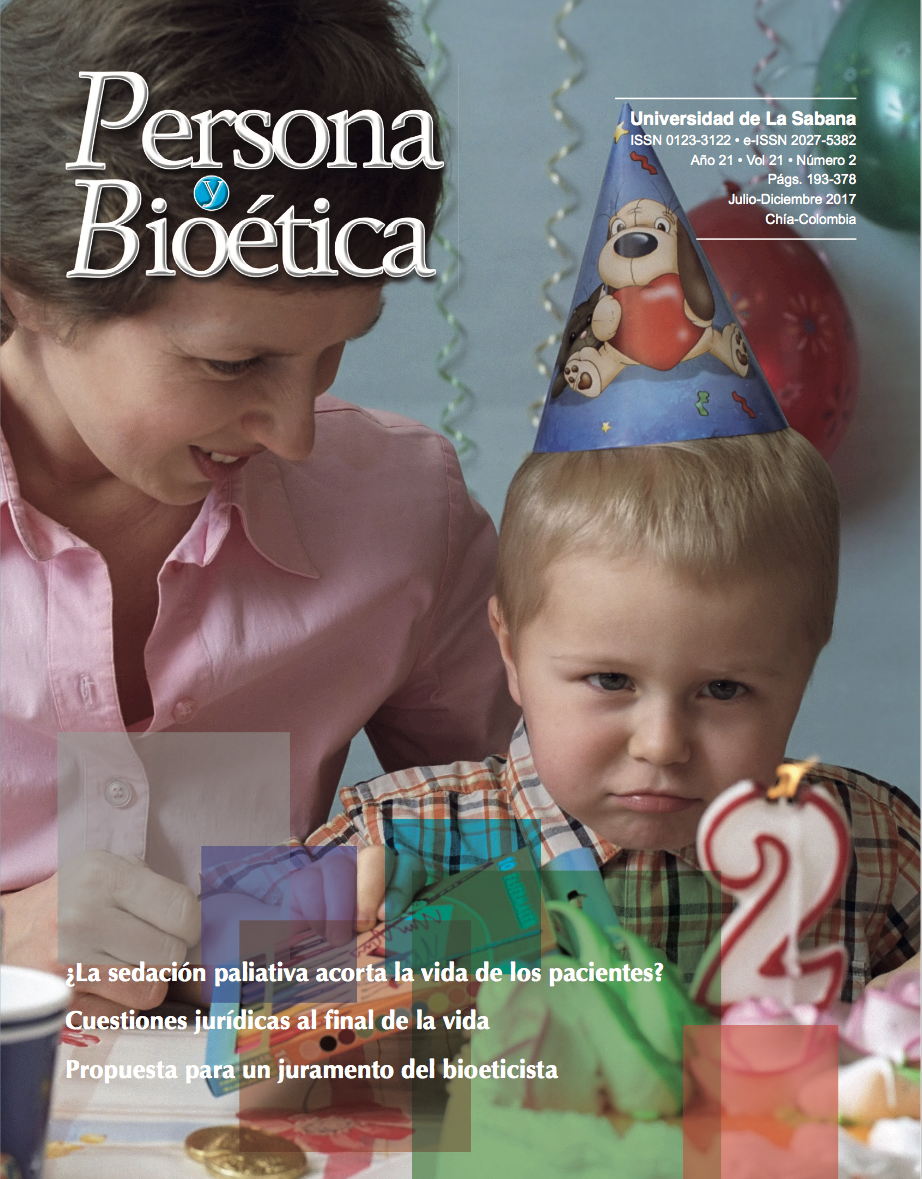Does palliative sedation shorten the lives of patients?
Keywords:
Terminal patients, palliative sedation, refractory symptoms, euthanasia, quality of lifeAbstract
Respect for human life is central to medicine. In terminal patients, refractory symptoms are a niche of palliative sedation. This paper identi es, based on scienti c evidence, the survival in patients who received palliative sedation as compared to those who didn’t. We conducted a search for systematic reviews from 2000 to 2016, which were methodologically analyzed, and the results were then compared. For methodological reasons, meta-analysis could not be performed. It is concluded that terminal palliative sedation does not shorten patients’ lives. The implementation of the principle of double effect related to the possible shortening of life was reformulated; the unwanted evil is the loss of consciousness.
Downloads
Downloads
Published
How to Cite
Issue
Section
License
Authors who publish with this journal agree to the following terms:
This journal and its papers are published with the Creative Commons License Attribution-NonCommercial-NoDerivatives 4.0 International (CC BY-NC-ND 4.0). You are free to share copy and redistribute the material in any medium or format if you: give appropriate credit, provide a link to the license, and indicate if changes were made; don’t use our material for commercial purposes; don’t remix, transform, or build upon the material.





